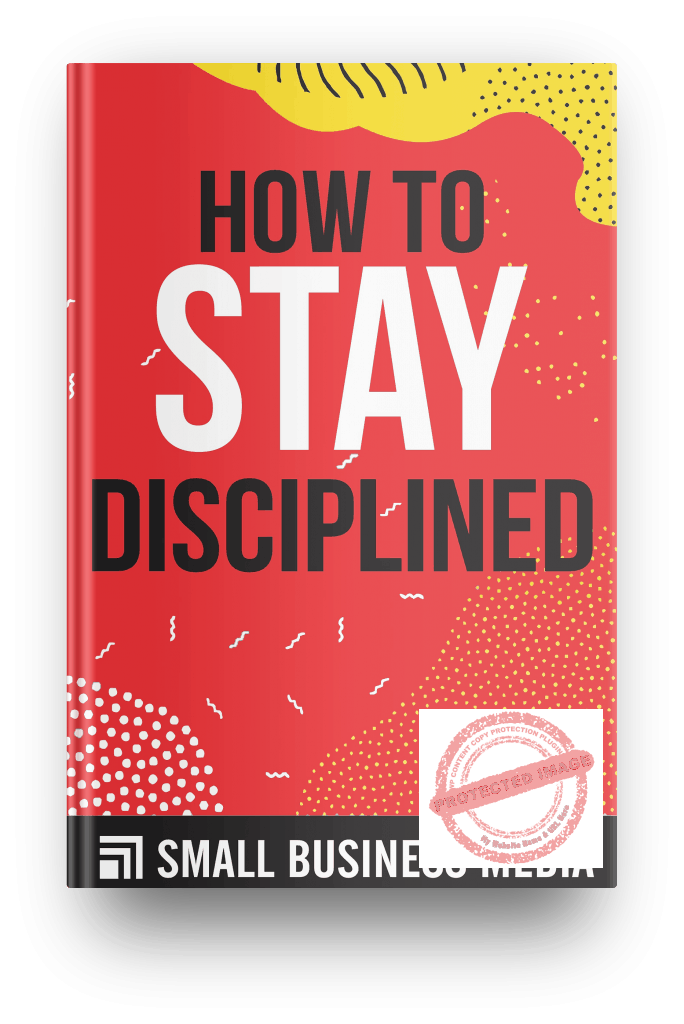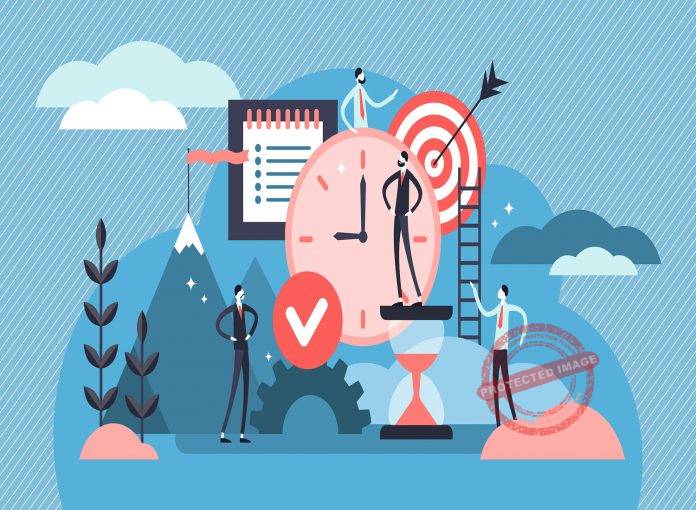Do you struggle with how to stay disciplined? Discipline, they say is the bridge between goals and accomplishment. Without discipline, your goals and aspirations remain dreams and out of grasp.
Self-discipline deals with your ability to do what it is that you should be doing.
It often entails giving up your short-term wishes in favor of your long-term goals.
Also referred to as self-control, self-discipline involves leaving your comfort zone and going beyond your emotions in order to get something done.
But Why Is Discipline Important?
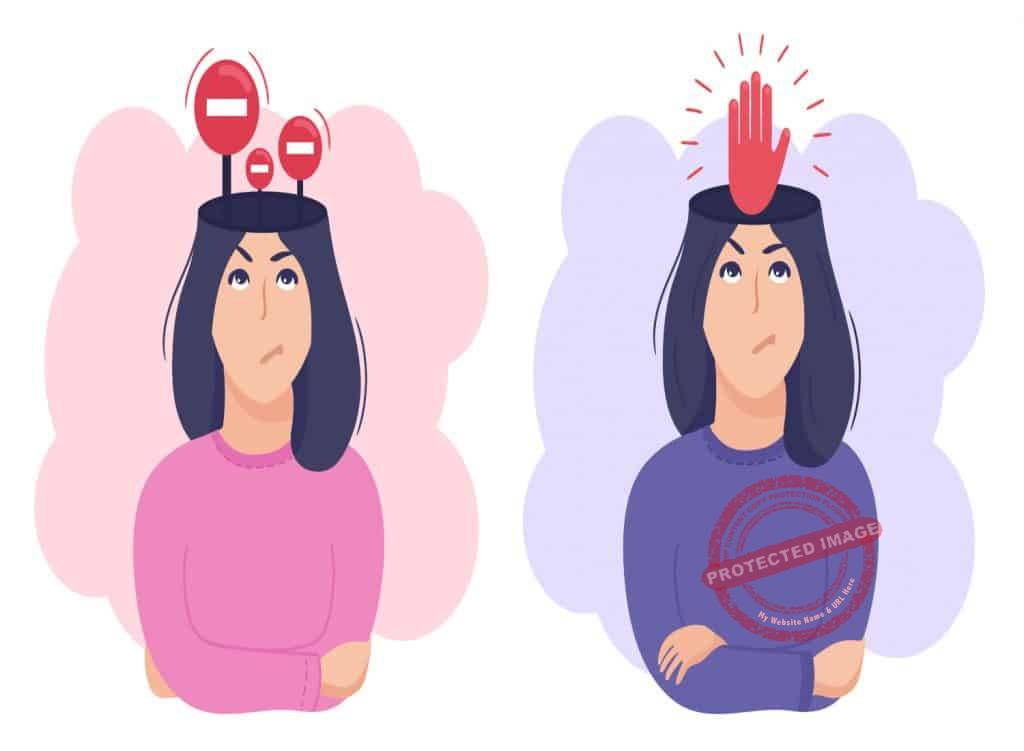
Why do we try to achieve something further?
Can’t people simply be content with what and where they are now and not bother with building self-discipline at all?
The answer lies in the science of achievement.
Human beings are naturally drawn to the things that are better, beautiful, and desirable hence, the need to go further.
But where?
- To where long-term goals are achieved.
The idea of self-discipline has been a central theme of Angela Duckworth’s research about grit [determination].
Hailed as the secret to success, grit involves the application of sustainable talent over time. In other words, grit is the sustenance of self-discipline.

- To where anxiety is more manageable.
Strangely, discipline plays a role when it comes to alleviating anxiety levels.
For example, researchers discovered that self-control had a lot to do with managing test [examination] anxiety among students.
- To where physical health is improved.
Did you know that learning how to build self-control rewards you with a better physique and resistance to addictive substances like alcohol?
Self-discipline also helps you develop healthy eating habits because you won’t go about eating just when you feel like it.
- To where relationships are better.
If you know the ways to stay disciplined, it will show in different aspects of your life.

Psychology links self-discipline to the development of positive relationships.
That’s because self-control helps you understand how others feel.
- To where resilience is better.
In addition to empathy, self-discipline is also linked to resilience.
If you learn how to build self-control, you’ll be more likely to be confident in managing the ups and downs of life, and to recover faster from downfalls.
- To where you are happier.
People who know how to stay disciplined are generally happier than those who don’t.
That’s because people with discipline have more control.
And if people have more control, then they tend to have a more secure sense of well-being.
Still, Why Do Some People Show Lack Of Discipline?
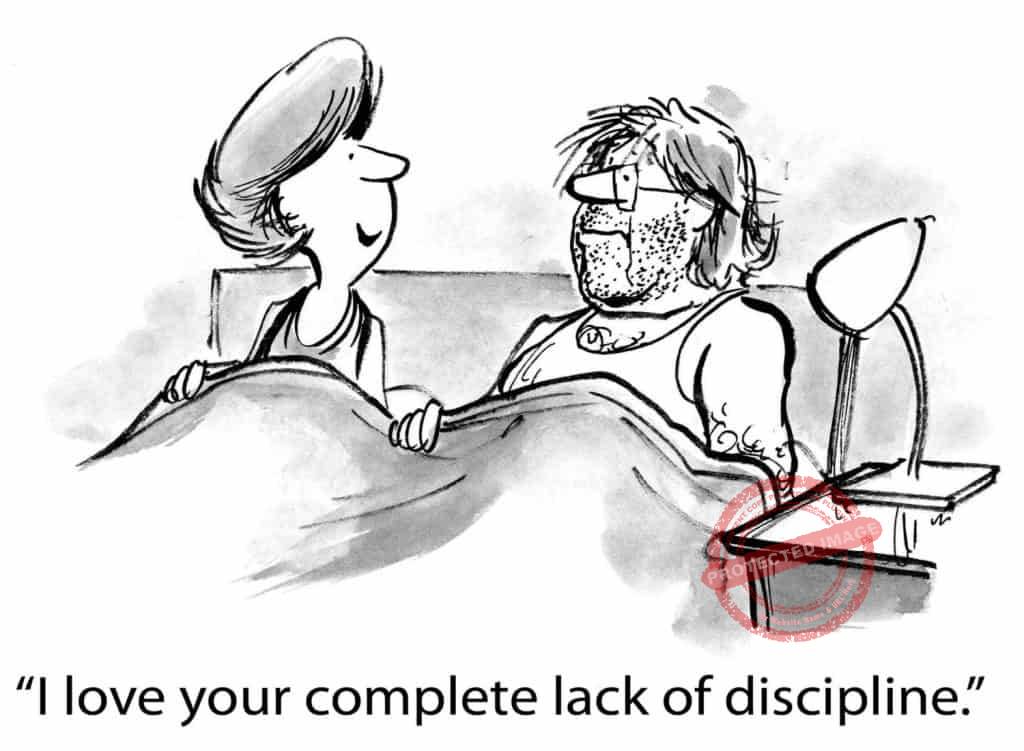
It is interesting to know that while some people try hard to learn how to stay disciplined, others don’t even do something about it.
But before you think of any other reason, have a look at some of the sensible explanations.
Some people fear failure.
What if you can’t deliver your reports on a monthly basis?
Some people just get scared of not meeting a goal – of failing it.
That’s why they’d rather not learn self-discipline tips.
Some people haven’t discovered their purpose.
At least not yet.
Have you ever felt that you’re moving aimlessly through life?
That’s how it feels to not have a purpose.
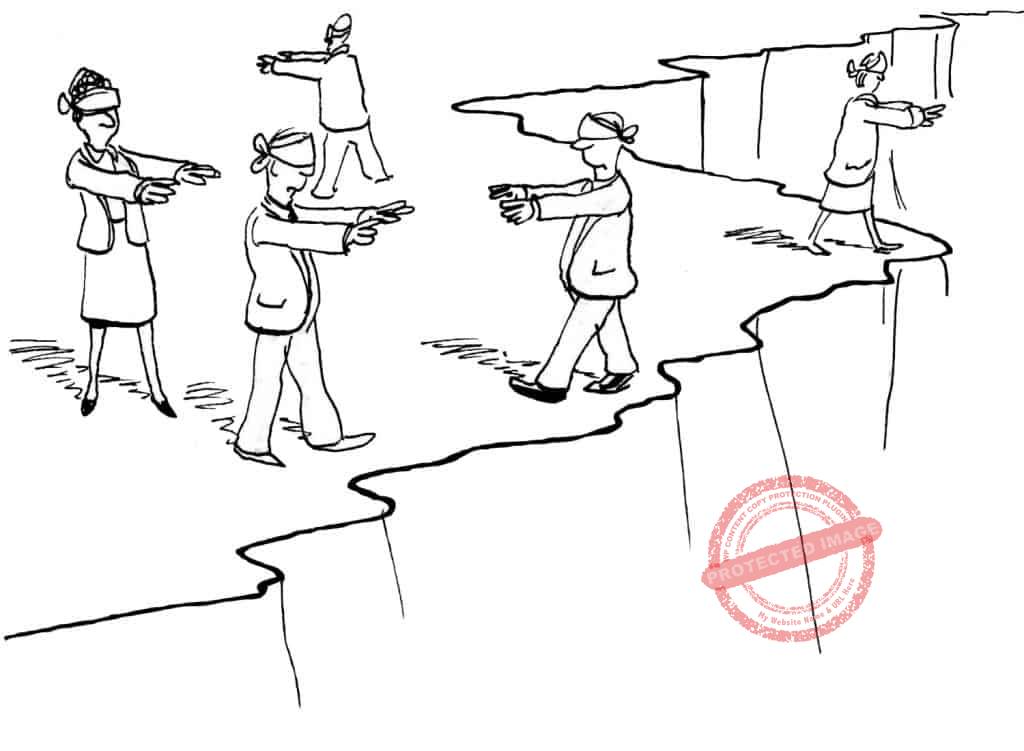
But if you do discover your purpose, your actions are more deliberate.
That’s because you’re on to something.
In the process of moving towards that goal, you’ll learn how to discipline yourself.
Some people love to procrastinate.
Procrastination is a productivity-killer.
And because it kills productivity, it must also kill every effort at staying disciplined.
That’s because procrastination itself is an indicator of a lack of discipline.
Some people have selective discipline.
This notion could be a game-changer.
The fact that a person doesn’t know how to build or show self-control doesn’t mean he doesn’t have it.

If you notice, more people seem to inject the concept of discipline when talking about big goals.
In simple activities like checking emails during a commute or making calls while walking home, the concept isn’t so evident.
There are also instances where the habits you have are not applicable to all situations.
For example, you may not apply the habits you’ve developed as an employee when you become an entrepreneur.
In the same way, the habits that you develop as a writer may not be so applicable when you’re working as a doctor.
So, What Self-Discipline Tips Can You Adopt?
Acknowledge Your Weaknesses
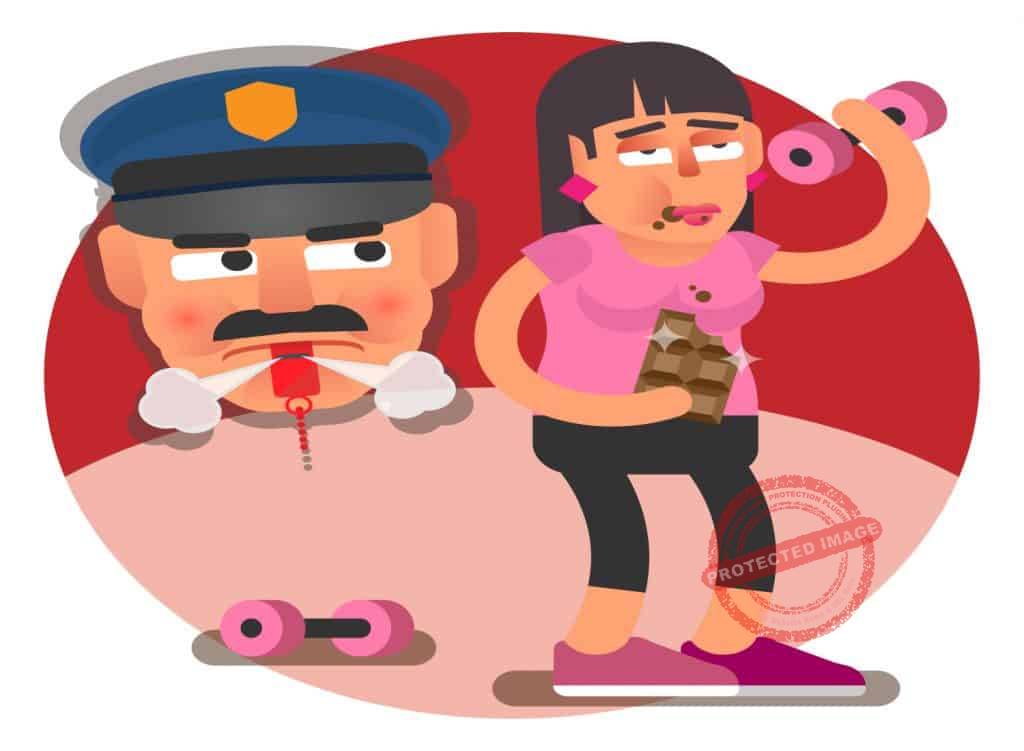
If you’ve set a goal to lose weight in a month, but find yourself gorging up, then you’re in trouble.
Especially if this is your tenth attempt at losing weight.
Yes, people are entitled to eat whatever they like but it is good to apply discipline even in this area.
Discipline involves maximum self-restraint.
In your case, it means not allowing yourself to eat to your satisfaction whatever it is that you fancy eating.
When you’ve resolved to lose weight because you have good reasons to do so, you’re more than welcome to indulge yourself from time to time.
However, every day cannot be a ‘Cheat Day.’
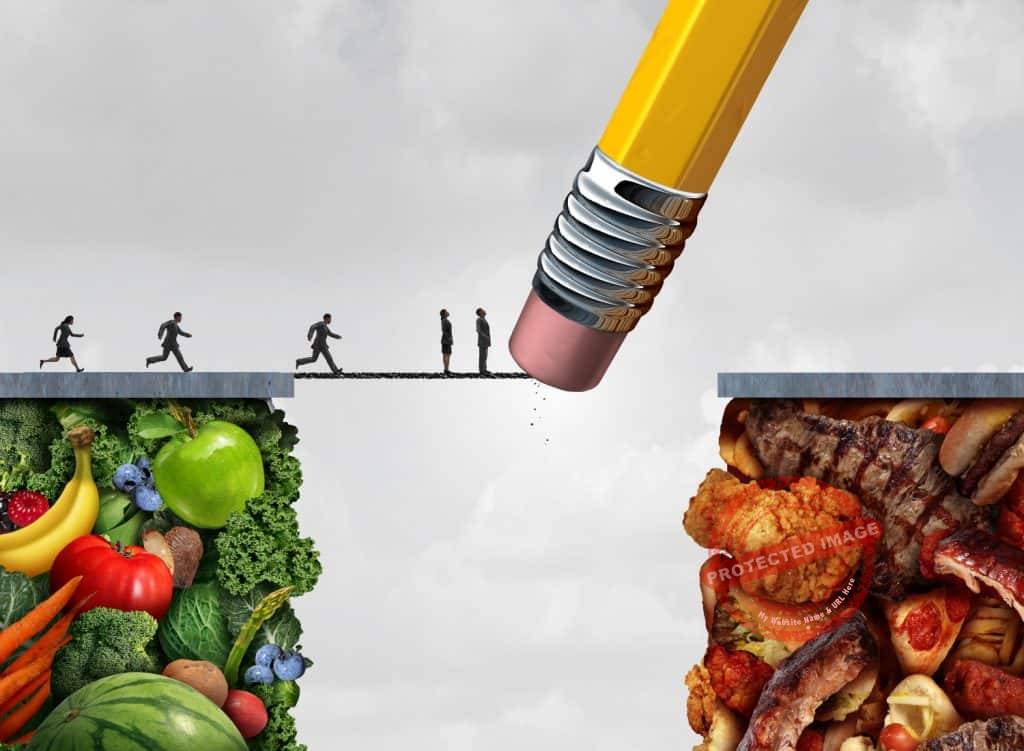
There are people who pretend as though they’re in control of their weaknesses.
There are even those who act like they don’t have weaknesses of any form.
If you’re one or both of these types, then you need to know that the starting point of a disciplined life is knowing and accepting your weaknesses.
The rationale is simple: you can’t overcome something that you can’t acknowledge.
So, if you’re well-aware that you have a problem being disciplined, then maybe it’s time that you look inside yourself.
Maybe the one thing that’s stopping you from becoming or staying disciplined is you.
Eliminate Distractions

Perhaps the biggest distraction in today’s world is social media.
People aimlessly scroll through their feeds many times a day.
Some people say they do it to pass the time – and they’re right about it.
However, for a person who tells himself to stay away from social media but carries his phone even when he goes to the bathroom, who keeps it online and sets up alerts for notifications, the distraction will never go away.
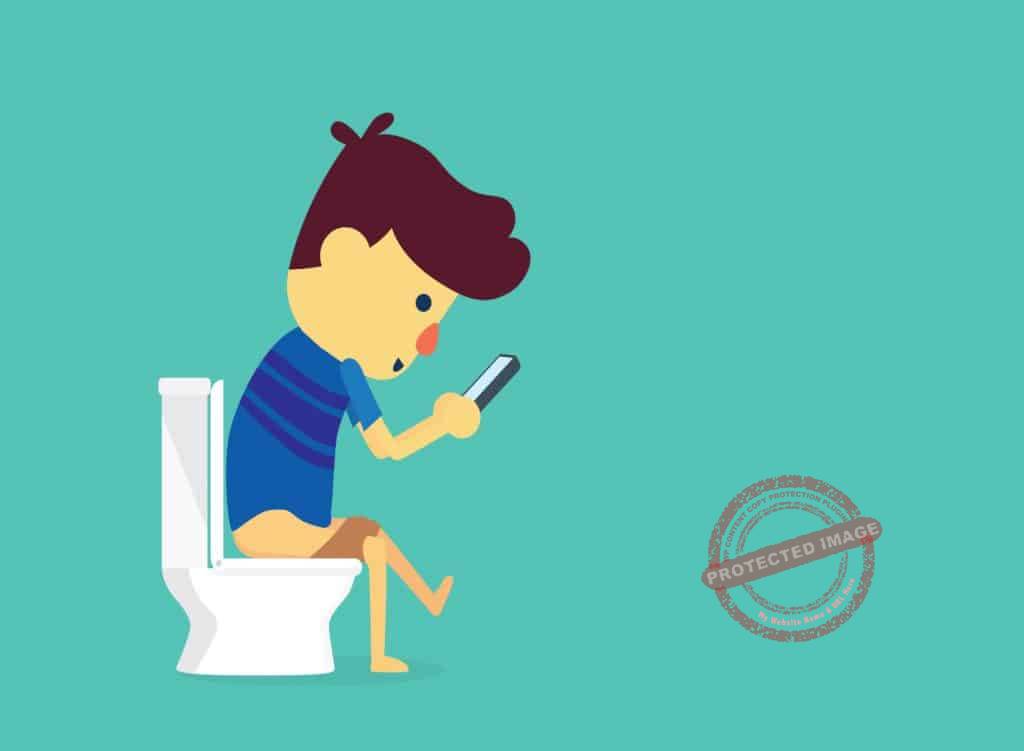
The same applies to someone who says that he will opt for a healthy diet.
The next thing you know, he’s got some chips and a cup of soda beside him.
Being distraction-free is one of the ways to stay disciplined.
Distractions take your attention away from what matters at the moment.
This, in effect, causes you to stray from your commitment to do the opposite.
Eliminate distractions that take you away from living a disciplined life.
Stay off social media, turn off those notifications.
Do not keep soda in the house if it takes you away from the disciplines you have set for yourself.
Avoid Temptations

In cooler months, it’s very tempting to stay longer in bed.
Even when you know that you should be out there for your daily jogging routine.
You know the facts: that a little bit of exercise each day helps you to stay in shape; that taking the stairs instead of the elevator also helps you physically toughen up; and so on.
Still, you just can’t resist the temptation of sleeping for only a few minutes more.
The next thing you know is that you’ve overslept.
Sustaining your self-discipline means that you should be committed to whatever it is that you want to change or achieve in your life.
So, avoid the things that tempt you to do something which is the exact opposite of what you want to achieve.
Have A Clear Goal
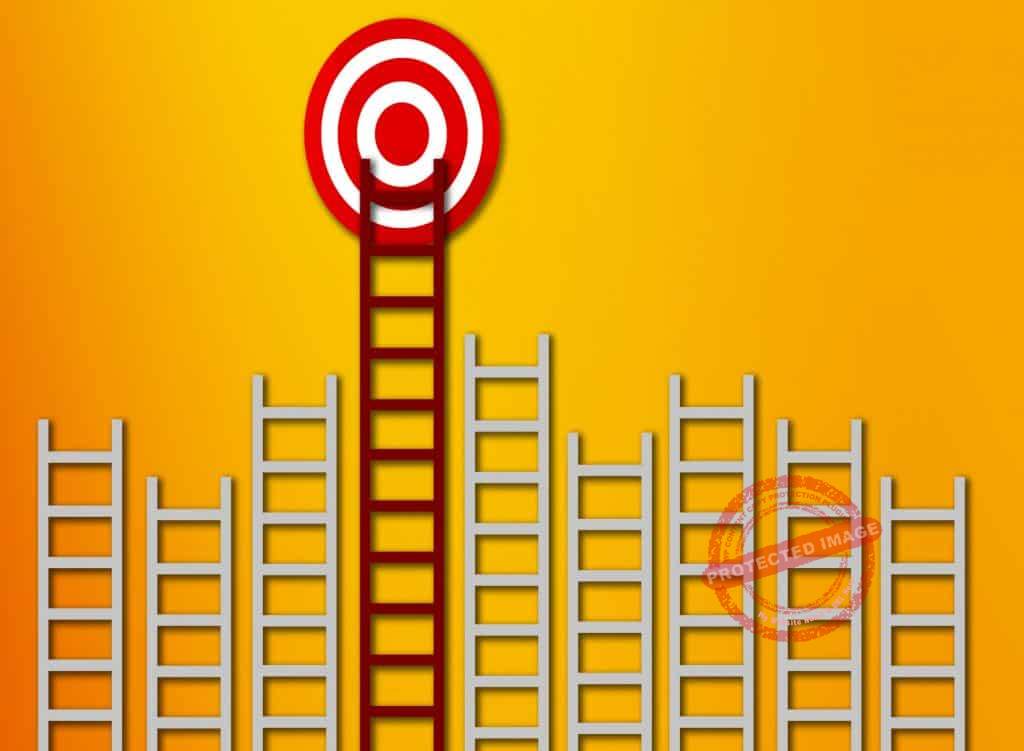
What is it that you want to accomplish?
It’s not enough for you to say that you want to get a promotion.
That goal can be better rewritten as ‘I want to get promoted to the post of Branch Manager after six months by consistently meeting my sales metrics and contributing more to the growth of the company through my ideas.’
If you have a goal, make it SMART.
Make it Specific, Measurable, Achievable, Relevant, and Timely.
The more generalized a goal is, the more challenging it will be for you to achieve it.
If a goal is challenging to achieve, one of the key elements in its achievement will also be hard to build.
You guessed it right.
One of those elements is self-discipline.
Be Diligent
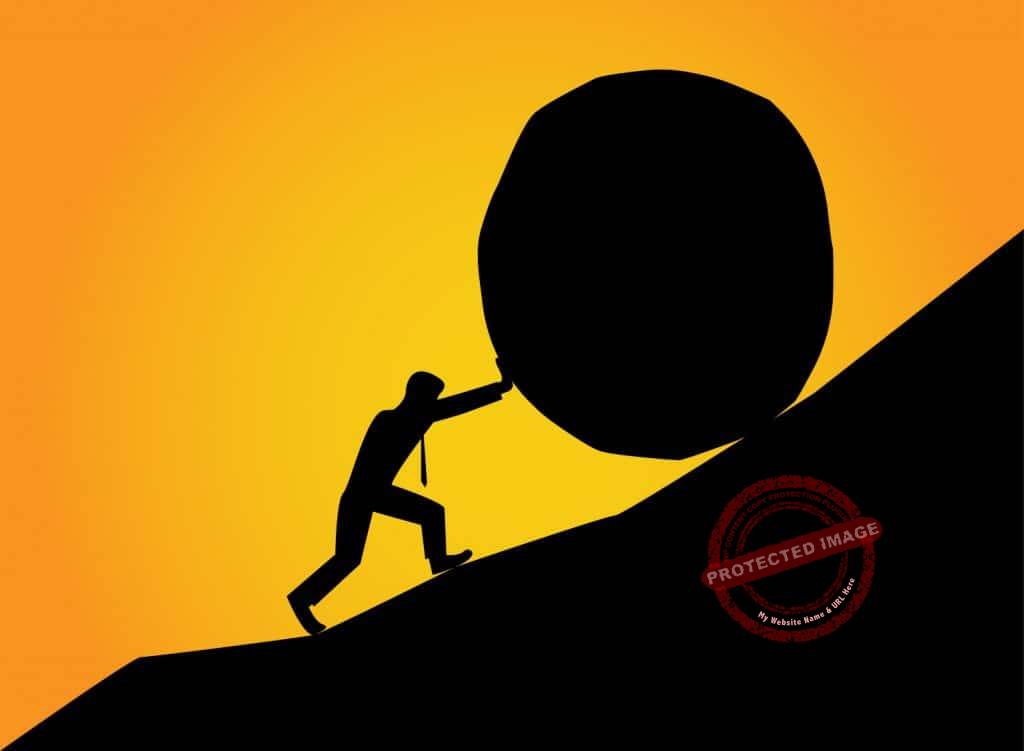
Discipline needs to be learned.
That’s because we, human beings, aren’t born with it.
That makes it a skill.
How do you develop it?
Through diligence – daily repetition or practice.
Realize this: as you grow older and progress through life, you’re bound to make bigger decisions.
And those decisions will most likely involve other people.
You may get married, start and grow a family, purchase a house, change your job, and so on.
The bigger a decision is, the more willpower is needed.
So, when is the best time to practice diligence and to learn how to discipline yourself? The answer is, NOW.
Understand The Physiology Of Discipline

Did you know that food also plays a role in you staying disciplined?
That’s right.
When you’re hungry and have exhausted your body’s sugar reserves, you tend to feel annoyed.
That’s especially if it’s taking years for lunchtime to arrive.
But more than the irritation that you’ll feel, you may notice that you’re suddenly out of focus.
Now you can’t concentrate on your work.
You just feel hungry.
New research findings have proven that hunger can effectively reduce willpower.
That’s because self-control seems to ‘loosen’ up a bit when you’re hungry.
What can you do?
Have a stash of snacks – the healthy options – in your drawer.
That could be a pack of biscuits, candies, homemade treats, or anything that keeps your hunger away.

And when you do have lunch, don’t eat too much.
It’s a lot better to eat five small meals a day than to have a go at it twice daily.
The goal is to sustain your willpower.
With it, you can stay focused, thereby disciplined.
Understand The Psychology Of Discipline
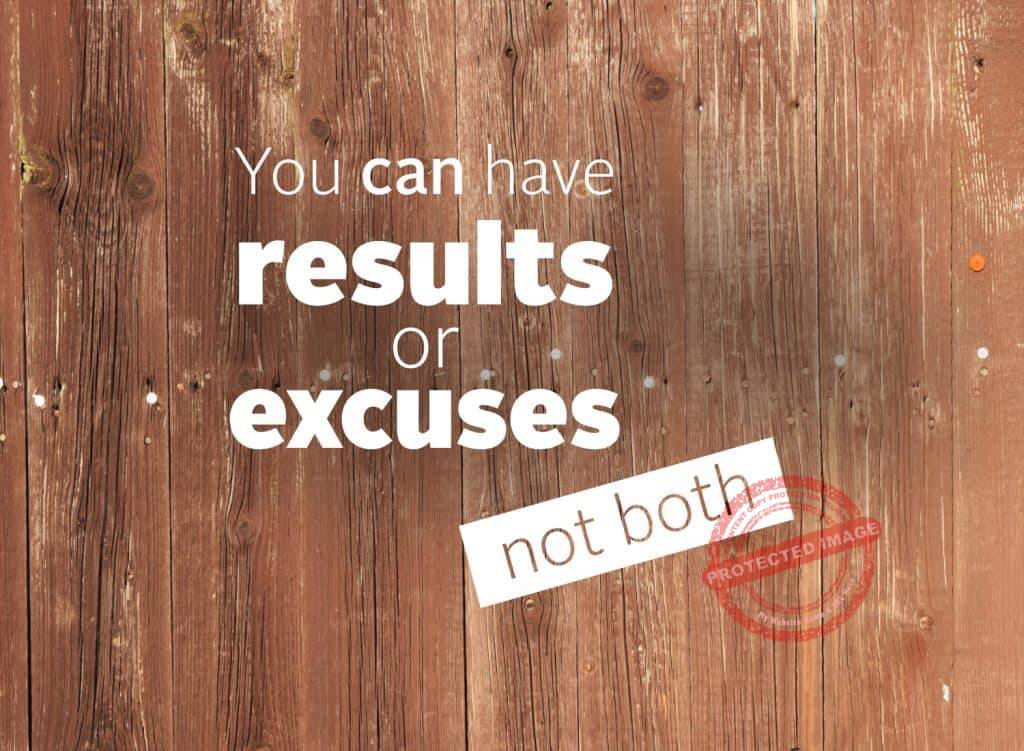
Did you know that your beliefs about the discipline itself influence your level of personal discipline?
If you believe that your level of discipline – or willpower – is low, then you’re right.
Picture a conversation with your friends where you’re talking about not going shopping for clothes for a year so that you can save money for a trip to the Galapagos Islands.
Out of nowhere, you say, ‘I can’t do that because…’ You just turned down a trip to one of the most diverse places on Earth just because you believe that you can’t stop yourself from shopping for a year.
What can you do?
Remember what we have said about learning discipline?
If you’re able to change your notion about your own ability to stay disciplined, then you stand a chance at improving.
You may even surprise yourself by being more disciplined than your friends.
By the way, this is supported by a study done at Stanford University.
Researchers call it ‘The Science of Willpower’.
Introduce Discipline Rewards

Building self-discipline may become an adventurous journey for you if you have something to give yourself when you’re successful.
It’s just like working really hard to meet your sales quota so that you can see your favorite band perform live.
In fact, there’s considerable research proving the effectiveness of external rewards when it comes to goal achievement.
It’s just that this time, your goal is a little bit different: staying disciplined.
What may be driving this relationship between a goal and a reward is anticipation.
If you’re anticipating something, you tend to obsess over it.
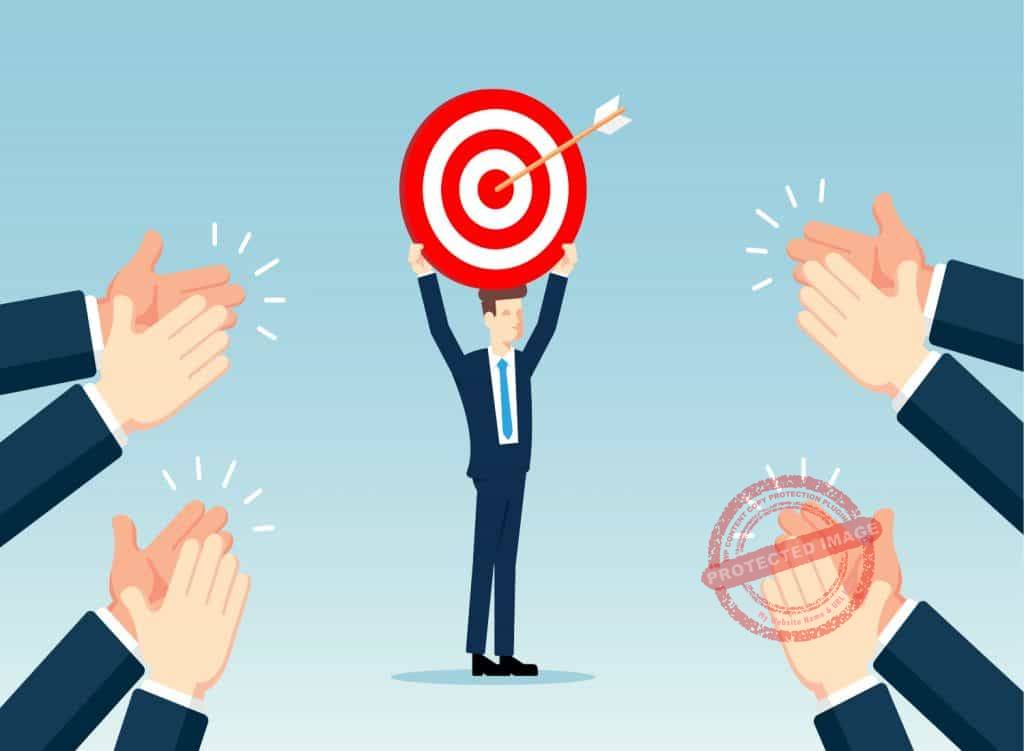
So, your focus is on the reward.
In the process, you’re also achieving your goal.
And do you know what makes things better?
Once you love the results you’re getting, it encourages you to structure your goals based on a reward system.
So, you aim for something, and as a well-deserved reward, you do or give something for yourself.
Note: cheat days are rewards in themselves.
But again: not every day is a cheat day.
The Right Time Will Not Come

Even in the concept of developing discipline, people still procrastinate.
And they tend to sugar-coat that by reasoning out that the time isn’t right to be living a disciplined life.
“The right time will come.
It’s just that it’s not right this time.”
The questions are: when will developing self-discipline ever feel right?
When will you know when things feel right?
And when it does feel right, will you really strive to build your discipline?
Here’s the thing: if you’re going to start doing something new – especially something that breaks your behavioral pattern – you may end up fighting yourself.
The reason is scientific.
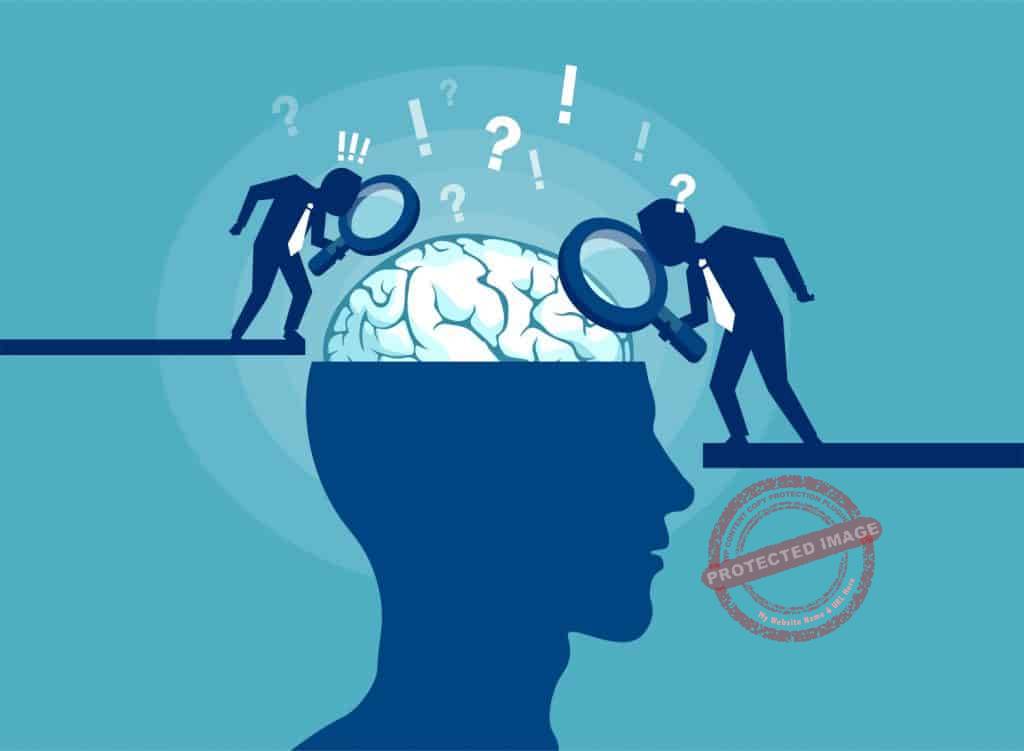
Human beings make decisions by using their brain’s pre-frontal cortex.
But people establish habits with the help of the brain’s basal ganglia.
This is the part of the brain responsible for memories, patterns of behaviors, and emotions.
So, what happens is if you’re used to acting based on your impulses and then all of a sudden, you resolve to be more reasonable.
Your basal ganglia and prefrontal cortex go to war against each other.
This explains why embracing change is difficult.
However, this difficulty is normal when it comes to habit building.
As soon as you embrace your newfound willpower, your pre-frontal cortex will get used to it.
Ultimately, you’ll function on auto-pilot, thanks to your basal ganglia.
That’s when you would have discovered personal discipline.
Failure Is A Part Of Success

You can’t say that you’ve succeeded if you haven’t really failed.
Or if you’ve always succeeded, then you won’t fully appreciate the power of success.
You’ll discover that through your quest towards living a disciplined life, you may make mistakes sometimes.
Yes, you can’t always get it right, and one can’t develop discipline overnight.
But remember: there must be a learning experience each time you get side-tracked.
So, if the same mistake keeps happening, you need to reassess the level of your willpower.
Do you still have it?
Is it still strong?
Does it still drive you towards your goal?
Self-discipline is a valuable skill that can take you far.
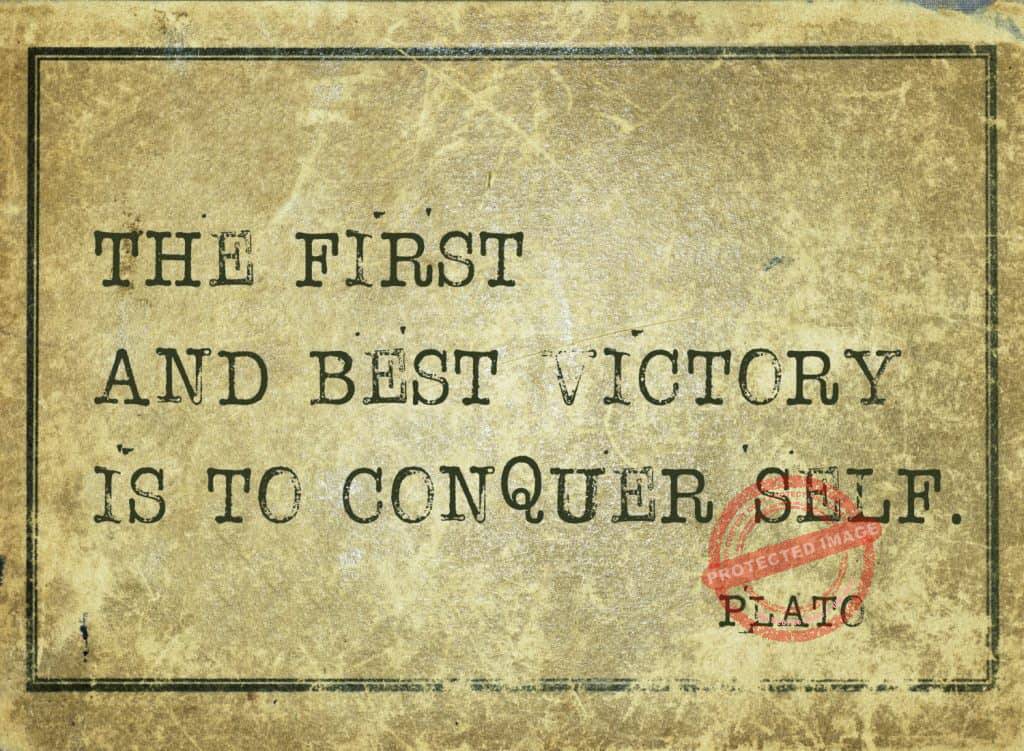
With it, you can accomplish a lot of things.
In business, people have found self-discipline right in the midst of success.
Even the wealthiest CEOs that we know today value discipline so much that it’s become a fabric not only of their personalities but also their company culture.
What are the things you have achieved through self-discipline?
How was your journey towards maintaining your will-power?
Do share with us!
Click on Buy Now For a PDF Version of This Blog Post
 |
